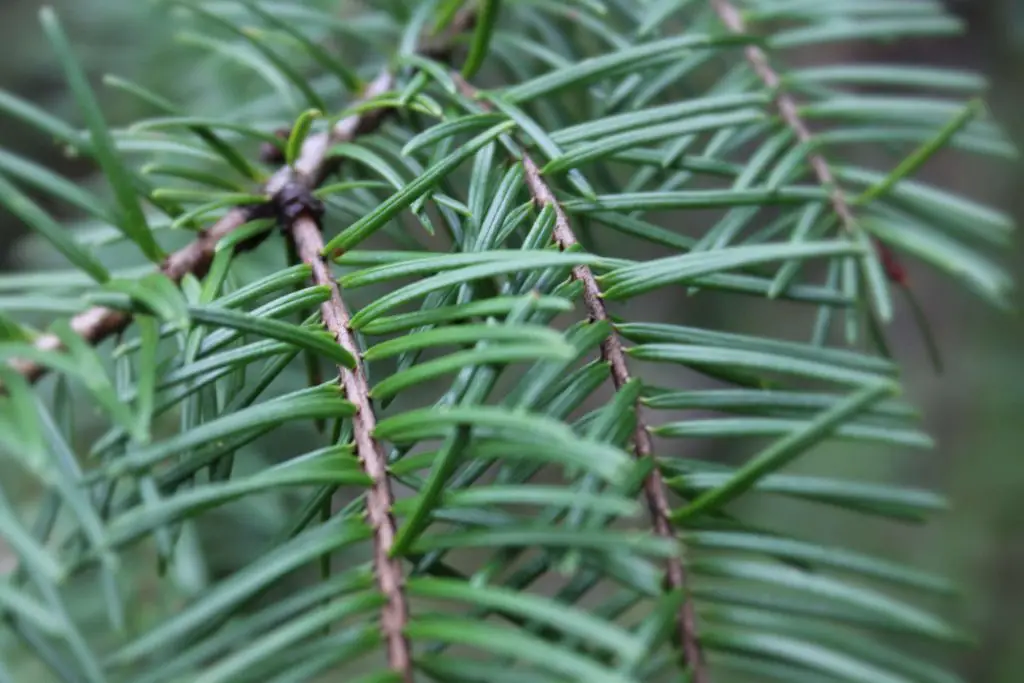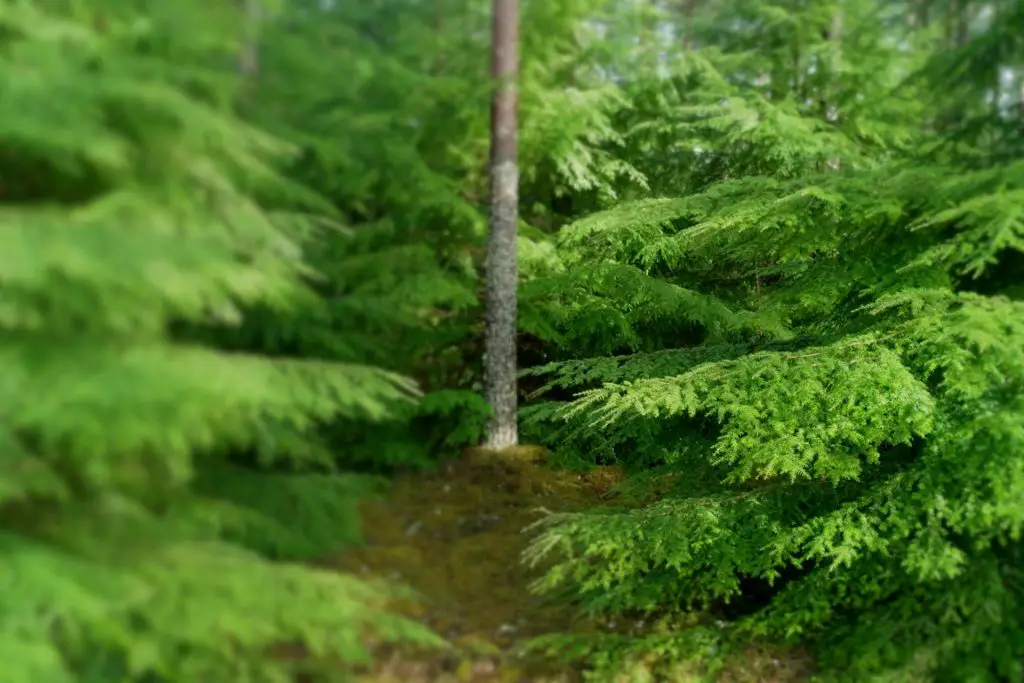Pine Needles in Compost | An Adverse Effect on Soil Quality or Super Ingredient?
One of the most abundant organic materials that you can come across are pine needles. Being an organic material pine needles in compost ought to work well but bearing in mind the difficulty that some plants seem to have thriving where fallen pine needles are close at hand it causes pause for thought.
This raises a question often asked about pine needles which is, whether they have an adverse effect on soil quality and thus, will affect the quality of finished compost if they are used in it?
It is true pine needles are acidic in nature and that can affect the soil, but this effect can in fact be beneficial. Indeed, we shall see that, if used correctly, pine needles can actually become a ‘super ingredient’ when composted or added to finished compost.
Is it ok to put pine needles in compost?

Irrespective of what you might sometimes hear, yes, you can put pine needles in compost without any problems. Indeed pine needles are an excellent material for composting
Are pine needles biodegradable?
As pine needles are an organic material they will decompose. They should be added to your compost heap with other organic matter, like leaves, grass clippings and kitchen waste. Pine needles do not contain any toxic substances but are acidic when freshly fallen. however, this won’t affect the health of your soil.
Pine Needles and Compost Ratio
Pine needles like leaves, wood chips and cardboard amongst other materials are considered brown materials. This means that they have a high carbon component in relation to their nitrogen component. This ratio is important to know as efficient composting depends on your compost pile having the right ratio of carbon to nitrogen, depending on the composting process
| Organic Material | Carbon to Nitrogen Ratio |
| Pine Needles | 110:1 |
One of the benefits of using pine needles in a compost pile is that they wont compact together in a way that some other organic materials like grass cuttings do. This allows air to circulate more freely within the pile, which in turn will mean the pile will achieve hotter temperatures; this helping the decomposition process.
How long does it take for pine needles to break down?
The time taken for pine needles to decay depends on the type of pine tree that you have, the age of the needle and the state in which you add the needles to the compost.
Being a carbon-rich organic material, if you were to just leave pine needles on the ground and not add them to your compost pile then it can take up to approximately two years for them to completely decompose on their own.
If, on the other hand, you put them in your compost pile then the timespan to getting usable compost is reduced to about six to twelve weeks, when employing a hot composting process
Dried Pine Needles Composted
Extensive research has shown[2] that dried-out (aged) needles decompose much faster than fresh needles. Dried needles, when hot composted, decompose in around six weeks.
Fresh Pine Needles Composted
Fresh needles, however, take much longer. This is because pine needles are coated in a sallow feeling cuticle layer which hinders and delays the breakdown of the needles. Even with hot composting, these can take up to three months to decompose
Shredded Pine Needles Composted
The process can be speeded up by shredding the needles. Shredding them will expose more of the needle, including cross-sections of the needle without the cuticle coating, to come into contact with the microbes in the compost. This reduces the time to useable compost to around eight to ten weeks.
What Volume of Pine Needles Should You Add to Your Compost Pile?

Despite the fact they are probably abundant in your garden you should only add a limited amount of fresh pine needles to the compost pile since the acidity levels may damage the microbes and bacteria that drive the decomposition process.
If you have a plentiful supply of needles consider drying them out over time. The process will reduce the acidic levels and you will be able to add greater volumes to your composting pile.
You should also bear in mind that pine needles decompose at a slower rate than other carbon rich organic materials. The greater the quantiy of needles added will slow down the process.
Which Type of Composting Process Is Best for Pine Needles
A hot composting process is almost certainly going to be the preferred way to compost if you are looking for useable compost within six months. Although all composting processes should result in good quality, finished compost.
As we have discussed, as a material pine needles can be slow to break down because of the cuticle layer and if using a cold composting technique, this can take six months or even up to a year to fully decompose.
The way to expedite this process is to use either dried (aged) pine needles or shredded needles. Shredding helps expose parts of the needle that are not protected by the cuticle coating whilst, with needles that have dried out over the course of a year, the cuticle coating has dissolved. Either, allows an easier decomposition process.
Do Composted Pine Needles Have An Adverse Effect on Soil and Compost Quality?
Pine needles, when freshly dropped, have a pH rating of somewhere between 3.2 and 3.8 (pH 7 is neutral), which makes them acidic in nature. This doesn’t mean that the soil pH drops suddenly.
As the pine needles decompose they become less acidic and for a few months, the pH level of the soil will drop. How much it drops (use a soil testing kit) would depend largely on the volume of pine needles, but this drop is temporary. To permanently reduce the pH level of the soil would require establishing a self-sustaining soil eco-system.
Most plants thrive in neutral or slightly acidic soil between pH 6.5 and 7, while there are some plants such as blueberries that thrive in acidic soil around pH 4.5. So reducing the soil’s pH level can be a good thing.
This is why pine needles are more of a ‘super ingredient’ than a danger to your soil. Because of this, they can be used directly on the soil, composted or added to finished compost, depending on the results you want to achieve.
Composted Pine Needles: How Do They Affect the Finished Compost
In terms of how adding pine needles to compost, the acidic nature is largely diminished through the composting process. However, it often leaves the compost slightly acidic. This level is generally mild and varies from batch to batch of compost. The actual levels will depend on the amount of pine needles being composted. You can test the levels using a soil tester but should be good to use with any plants.
Adding Pine Needles to Finished Compost
Because the acidity diminishes with the composting process if you want to get a much lower pH level for planting specific types of plants, such as magnolias or blueberries, then a good practice is to add fresh pine needles to the finished compost.
This will bring down the pH level for a few months while the pine needles decompose. You will probably need to monitor the pH of the soil every so often adding more compost and pine needle periodically.
Summary: A Super Ingredient or an Adverse Effect on Compost and Soil Quality?
So are pine needles in compost magic or myth? It is a myth that pine needles have an adverse effect on the soil. Although acidic this diminishes as the needles decompose. As most plant-like neutral or slightly acidic soil, pine needles in fact can be beneficial. With careful application whether to soil, a compost pile or finished compost, they can act as a ‘super ingredient ‘, helping control the soil’s acidity levels.
When it comes to composting pine needles, again they can have a very beneficial effect on your pile. Although they are slower to break down than other carbon-rich materials knowing your composting process will help. As they don’t compact together they are a useful ingredient as they help air circulation through the pile.
If the determining factor is time then hot composting is the best way to compost pine needles. If you have time and space then you could consider drying out the pine needles before composting the following year. If you are going to cold compost using dry needles or shredded needles will speed up the process.
n balance, it could be argued that any detrimental effect that pine needles may have is far outweighed by their usefulness. They are very much an ingredient that you would want to use in your composting plans.
Commonly Asked Questions
How long do pine needles take to compost?
The time it takes for pine needles to decompose depends on whether they are fresh, shredded or aged. Aged pine needles can decompose in as little as six weeks if the pile is kept moist and turned regularly. Shredded and fresh needles take longer. Fresh needles can take up to three months to decompose and shredded needless around eight to ten weeks, again dependent on keeping the pile moist and regularly turned. If on the other hand you just leave the needles on the ground then it can take up to two years for them to decompose.
How to Compost Pine Needles Fast?
Aged pine needles decompose much faster than fresh needles. If you have fresh needles you can shred them to speed up the process.
Are dead pine needles good for compost?
Dead or aged pine needles are good for composting. They decompose far more quickly than fresh pine needles. They don’t compact together so will enable air to circulate more easily in your compost pile, meaning the pile will heat up more speeding the decomposition.
Notes:
[1]Derek H Lynch, Dalhousie University: Effects of Pine-Needle and Compost Mulches and Weeds on Nitrogen Dynamics in An Organically-Managed Highbush Blueberry Field
[2} Joan Nusbaum, Colorado State University, Pine Needle Myths
